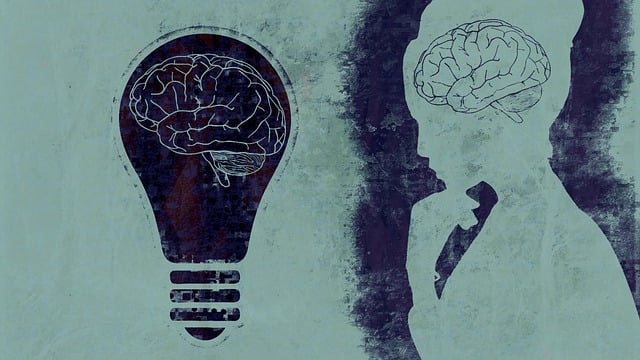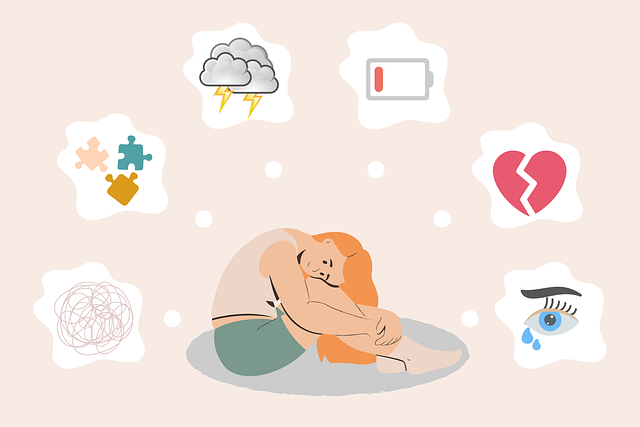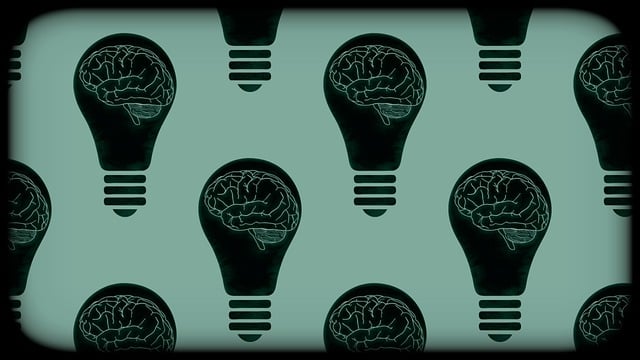Children's mental health is addressed through specialized approaches like Cognitive Behavioral Therapy (CBT), an evidence-based practice. Integrating mindfulness meditation, these tailored coaching programs enhance emotional regulation and coping strategies for both coaches and young clients, emphasizing early intervention. CBT, with its focus on modifying negative thought patterns, empowers children to manage their emotional well-being through structured, personalized sessions. A holistic approach combining CBT with empathy-building strategies improves treatment outcomes while community outreach and policy advocacy create a supportive ecosystem for mental wellness development. Effective programs rely on strategic long-term planning, regular communication, and integration of CBT for promoting healthier thinking patterns and emotional regulation skills, fostering long-term mental well-being.
Mental wellness coaching programs are gaining traction as effective tools to support children’s emotional well-being. This article explores crucial aspects of developing comprehensive programs, focusing on understanding unique mental health needs in kids and leveraging cognitive behavioral therapy (CBT), a powerful evidence-based approach. We delve into designing tailored coaching strategies, ensuring implementation success, and providing ongoing support for long-term positive outcomes. Discover how these elements combine to offer sustainable solutions for children’s mental health through CBT.
- Understanding Children's Mental Health Needs
- Cognitive Behavioral Therapy (CBT): A Powerful Tool
- Designing Effective Coaching Programs
- Implementation and Support for Long-Term Success
Understanding Children's Mental Health Needs

Children’s mental health needs are unique and complex, requiring specialized approaches to address them effectively. As society becomes more aware of the significance of early intervention, therapy for children has evolved to include various evidence-based practices. Cognitive Behavioral Therapy (CBT) is a prominent method that helps young individuals identify and change negative thought patterns and behaviors, fostering improved emotional regulation.
The development of mental wellness coaching programs must consider these evolving therapeutic techniques. Professionals in this field play a crucial role in supporting children’s mental health by providing risk assessments and tailored interventions. Mindfulness meditation, as a complementary practice, can be integrated into coaching to enhance self-awareness and coping strategies for both the coaches and their young clients.
Cognitive Behavioral Therapy (CBT): A Powerful Tool

Cognitive Behavioral Therapy (CBT) has emerged as a powerful tool in mental wellness coaching, particularly for children. This evidence-based approach focuses on identifying and modifying negative thought patterns and behaviors, empowering young individuals to take control of their emotional well-being. By teaching self-care practices and effective stress management techniques, CBT equips kids with the skills needed to navigate life’s challenges and improve mood management.
Incorporating CBT into coaching programs allows for a structured and personalized experience, addressing specific concerns while fostering resilience. Through interactive exercises and guided discussions, coaches facilitate a deeper understanding of thoughts, feelings, and their interconnectedness, enabling children to develop healthier coping mechanisms. This therapeutic approach has proven successful in various settings, offering a promising path toward enhancing mental wellness in youth.
Designing Effective Coaching Programs

In designing effective mental wellness coaching programs, a holistic approach is essential. This involves integrating various therapeutic techniques such as Cognitive Behavioral Therapy (CBT), which has proven successful in treating young minds. Incorporating empathy-building strategies within the coaching framework is crucial; fostering understanding and connection between coaches and clients can significantly enhance treatment outcomes, especially for children who may struggle to express their feelings.
Beyond individual therapy, considering community outreach program implementation and mental health policy analysis and advocacy ensures a broader impact. These strategies promote mental wellness on a community level, addressing systemic issues and providing accessible resources. By combining targeted interventions like CBT with inclusive community initiatives, coaching programs can contribute to a more supportive environment for mental health development and recovery.
Implementation and Support for Long-Term Success

The successful implementation of mental wellness coaching programs requires a strategic approach to ensure long-term sustainability and impact. After introducing evidence-based techniques tailored to individual needs, consistent support becomes pivotal. This involves ongoing communication channels between coaches and clients to address emerging challenges and track progress. Regular check-ins, for instance, can help in identifying early signs of potential burnout or emotional distress, allowing for timely interventions.
Integrating therapeutic methods such as Cognitive Behavioral Therapy (CBT) can significantly enhance these programs’ effectiveness. CBT is particularly beneficial for children, helping them develop healthier thinking patterns and emotional regulation skills. By fostering positive thinking and resilience, these strategies contribute to overall well-being, preventing long-term mental health issues. Supportive environments, both within the coaching program and at home, play a crucial role in reinforcing learned techniques and ensuring their longevity.
Mental wellness coaching programs, particularly those grounded in cognitive behavioral therapy (CBT), offer a promising approach to addressing children’s mental health needs. By designing effective coaching programs tailored to young minds, we can foster resilience and emotional well-being. Implementation strategies that ensure ongoing support and adaptability are crucial for long-term success, enabling kids to navigate life’s challenges with enhanced coping mechanisms. CBT serves as a powerful tool, helping children develop healthy thinking patterns and build a foundation of mental wellness that will benefit them throughout their lives.














